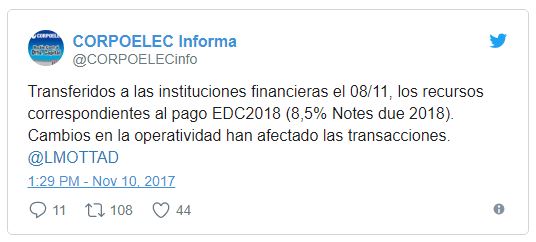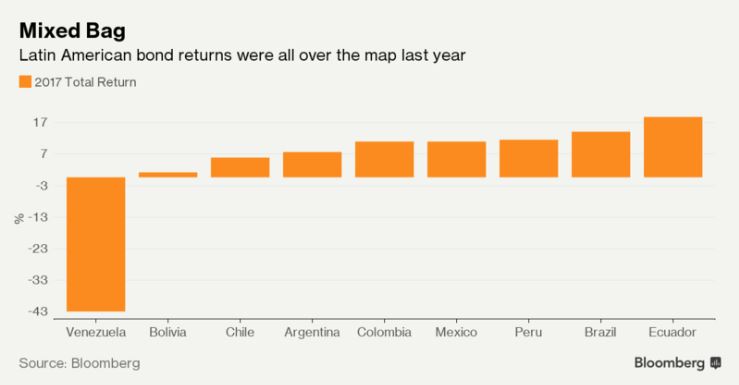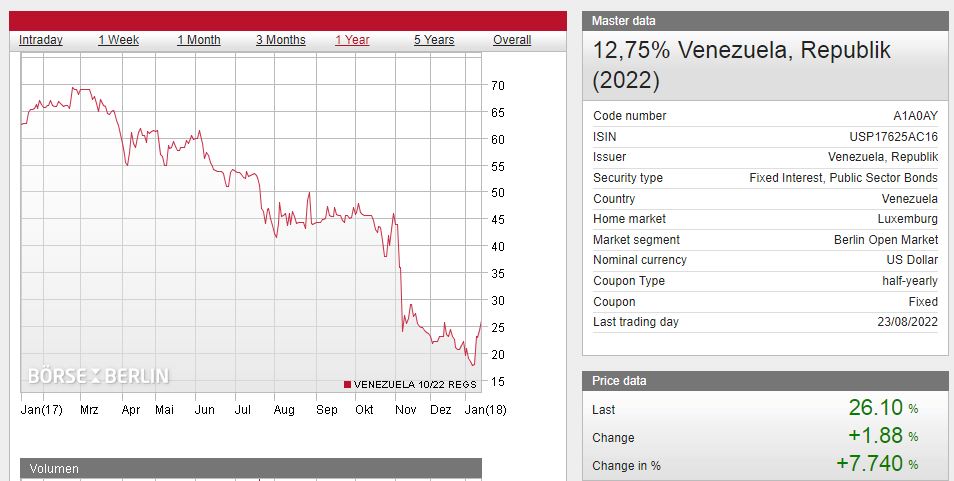From Difol to Default: The Five Stages of Venny Bull Grief
In 2017, some of the most brilliant people in the investment community, in El Rosal and Wall Street alike, fell for a trap that undid them. How a reckoning came to Venny Bull world.


Original art by @modográfico
Difol [dɪˈfɔl] – noun. A sovereign debt default, skillfully disguised as a drawn-out, confusing display of tropical bureaucracy and deceit.
It was a Monday morning meeting, in March 2017, when VennyLand was still a magic place of world-beating profits. Since the beginning of that year, I’d felt isolated in my view that the clock was ticking for Venezuela and PDVSA, that full-blown bankruptcy was nearer every day. But that Monday, I was joined by my boss, who had an epiphany over the weekend. And boy was he scared.
We have to sell everything, and I mean EVERYTHING. This thing is a house of cards and the market is insane. We all know VENZ is a 50-50 event for this year, so what’s the fucking point in paying 60, 70, 80 cents on the dollar to take such a terrible bet? The only thing that makes sense is the PDVSA 2020’s for the Citgo collateral, but everything else is worthless. SELL EVERYTHING.
One of the first lessons a Venny bond trader learns is that trying to go all Big Short and betting against VENZ and PDVSA bonds is only possible for Wall Street banks and hedge funds. Local traders can’t short Vennys, period. The game for local players is either you go all-in (the Bulls), or you take your chips off the table and sell everything (the Bears).
That made it hard for a Venezuelan trader to take a stand when the specter of default comes lurking. To try to make money, they had to time the default. Knowing that Venezuela would default was no help. They had to jump right before the crash. That’s how you could keep cashing in on those fat interest payments sin quemarte los dedos.
It was a nerve-wracking trade, and one that dirtied consciences all across the land. Lurking behind every Venny Bond had to be the dirty sense of “Wait, why am I even playing this game”, knowing the economy is going off a cliff and full-blown collapse seems inevitable?
There’s a particular kind of cognitive dissonance at play here: the juicy yields of VENZ/PDVSA bonds do battle in your head with the way their payment is bleeding the nation dry.
To try to make money, they had to time the default. Knowing that Venezuela would default was no help. They had to jump right before the crash.
How Venny Bulls stayed sane through it all I don’t quite know.
But they’re out there. And they come in all shapes and sizes, from Ivy League-trained economists always in for buying bonds, to young retail investors that put all their capital into bonds and HODL. And there’s the university professors who also serve as local brokerages’ heads, preaching the word of the Bull. They all came together in one thing: a Difol in 2017 was out of the question.
The Venny Bulls got caught with their pants down.
Fast-forward to November 3, a chain of events that started with the now-infamous ‘Difol‘ speech and more questions than answers.
We first saw the “Schrödinger’s Default”, when the trustee for the Electricidad de Caracas bond due in 2018 said the issuer was in default, only for Corpoelec to come out swingin’, denying all allegations and assuring investors the coupon is on its way.
Paging @LMOTTAD, the guy riding el carro in Corpoelec…
Guess what: 10 weeks later and the coupon is nowhere to be found!
Then we saw VennyBulls move through each of the five stages of grief in rapid succession…
Denial: “Venezuela is too big to fail”
The Emerging Markets traders’ guild decides in early November to proceed in a “business-as-usual” stance, as if the coupon payments were still flowing.
Of course, no payments have hit accounts since the PDVSA 20 coupon, over a month ago.
Anger: “The meeting is a bust, restructuring is a scam”
In November 13, we saw Tareck el Aissami and Simón Zerpa “fleeing-forwards”, leading a senseless meeting with both US bond investors and their US-sanctioned selves; everybody left disappointed and angry, aware that the game is stuck. Ratings agencies put the Republic and PDVSA into default. Red ink fills traders’ screens constantly and everybody’s frothing at the mouth.
Bargaining: “Nicolás is dumping us?”
December comes and goes and still, no coupons to be found. No excuses either, so the “operational setbacks” meme is used and abused by public officials when asked about the credit event.
Bulls delve into their most deeply-rooted fears:
Is this the end?
Is the Difol really upon us?
My bonds won’t recover, ever again?
Shall I sell everything?
But they reassure themselves with the soothing lullaby of Venny Bulls:
The government has never stopped paying bonds before
The government will pay its debts at all costs
It’s just a glitch, they’ll sort it out soon
Maduro’s friends and family are loaded with bonds, so stay calm.
Depression: “After topping 2016’s standings, Venny Bonds are 2017’s biggest losers”
Do you know what a Margin Call is? It’s the nasty effect of borrowing money to invest into something you don’t quite understand. It looked juicy, but the investment crashes so hard that you can’t even pay back your loan. If you don’t post more cash before the closing bell, your broker will liquidate your holdings, driving down your trading account to zero (or worse). Margin calls can destroy lives in a single day. Hell, they can destroy whole banks.
The year-end photo for Venny is ugly AF. -37.5% losses led them deep in the bottom of EM standings.
Acceptance: “Acceleration is the next step”
2018 rolls in, and bondholders come to terms with the new reality. Coupons won’t come anytime soon, so the traders’ guild decide to treat Venezuelan debt as a proper default. After more than 30 days of expired grace.
Finally.
Difol is on the cusp of graduating into default.
Bonds are so low now that even timid “dead-cat bounces” are driving strong world-beating returns for those who jumped in at the all-time lows, buying Venny bonds with the accrued interest shaved off. The long bargaining process between government and creditors hasn’t really started, but the spectre of acceleration looms large and scary.
Whatever happens now, it ain’t gonna be pretty for Venezuelans — or foreign investors.
The aftermath of the Difol: 2018 could show a slight bounce, as Bulls wonder “How much lower can it go?”
Caracas Chronicles is 100% reader-supported.
We’ve been able to hang on for 22 years in one of the craziest media landscapes in the world. We’ve seen different media outlets in Venezuela (and abroad) closing shop, something we’re looking to avoid at all costs. Your collaboration goes a long way in helping us weather the storm.
Donate







